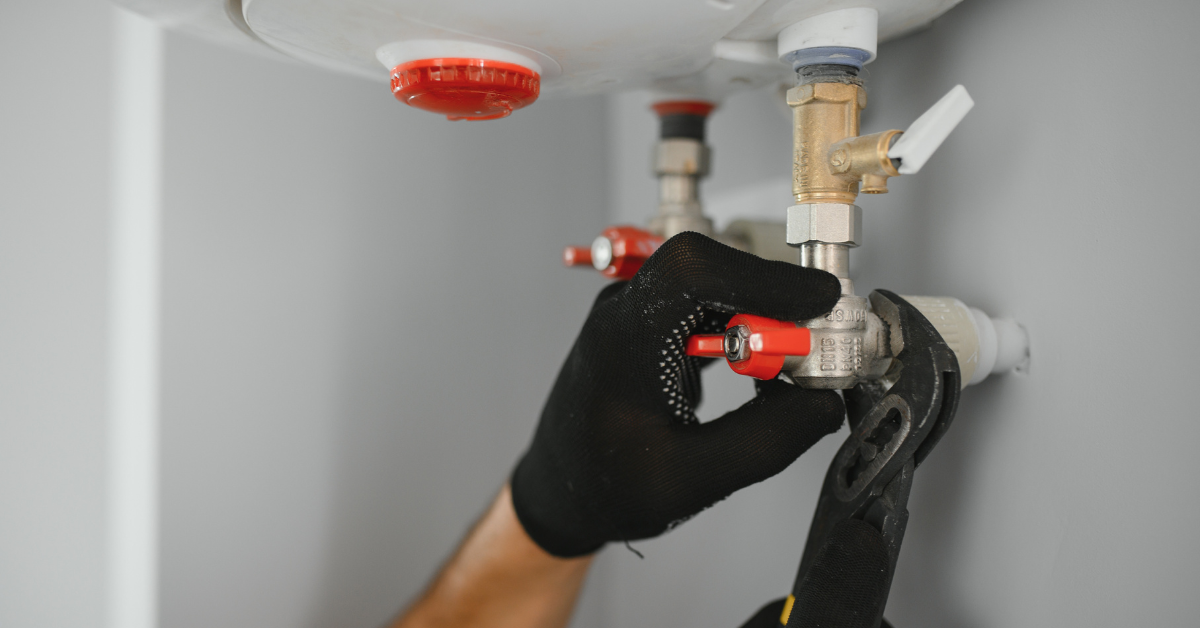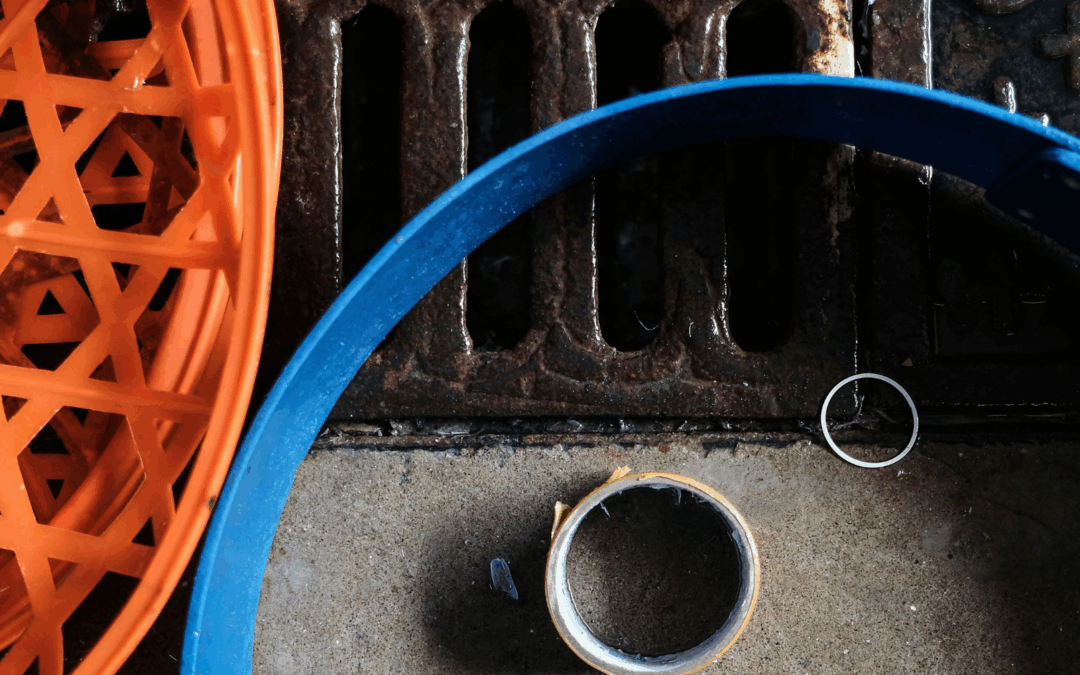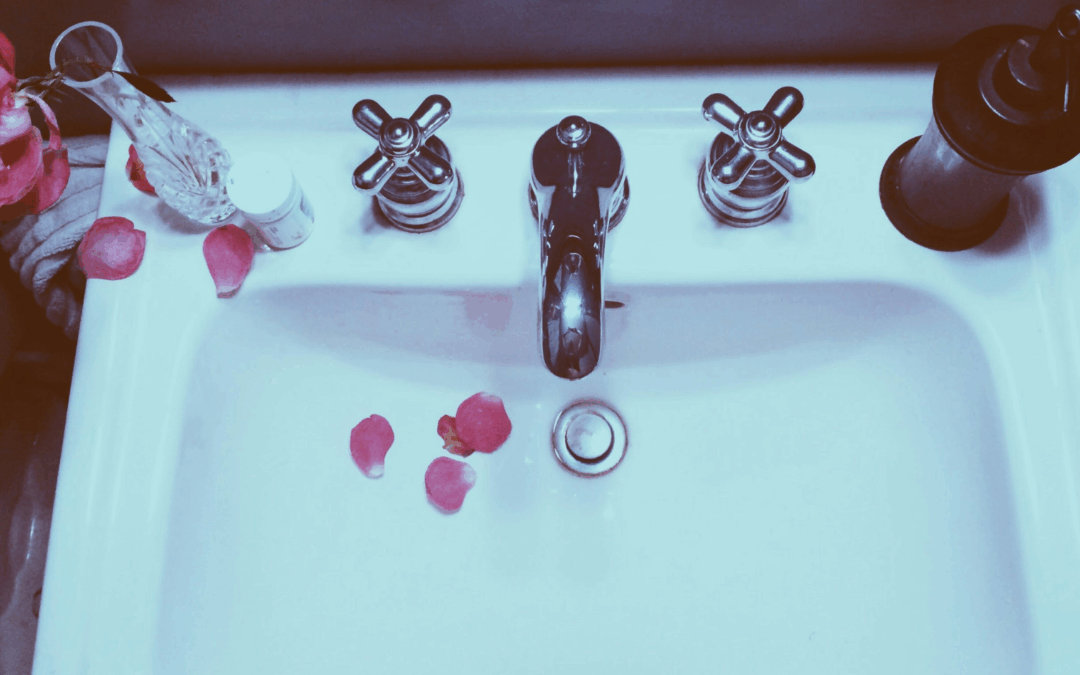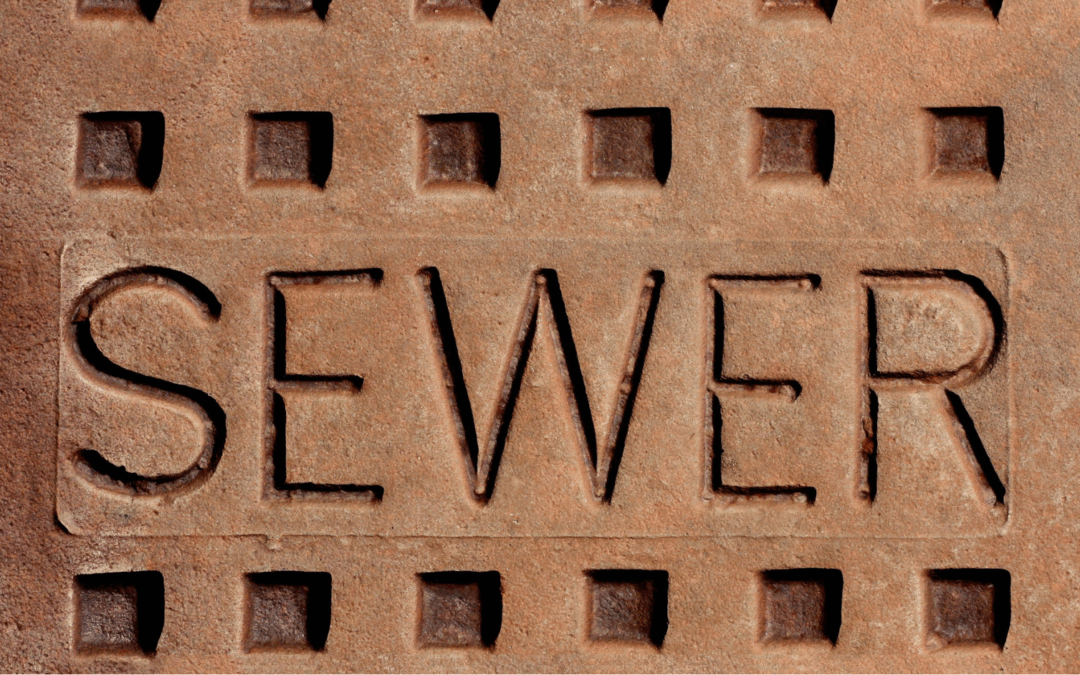Choosing a new electric or gas hot water heater for your Maryland home is a bigger decision than most people think. It’s not just about getting hot water; it’s about energy costs, how well it serves your family, and whether your current system is on its last legs. After more than 35 years in the plumbing business here in Maryland, I’ve seen how the right unit can save you money and prevent a lot of future headaches. The wrong one can lead to high bills and cold showers.
This decision often comes down to two main options: electric or gas. The choice depends on your household size, your hot water usage, and the fuel sources available to you. We’ll compare electric and gas water heaters, looking at everything from natural gas and propane models to different venting systems like direct vent and power vent. We’ll even cover the latest Energy Star certified options to help you make the best choice for your home in 2025.
Understanding Gas Water Heaters
Many homes in Maryland rely on gas water heaters, which use either natural gas or propane as their fuel source. These units are known for their power and efficiency, making them a popular choice for families and larger households. They are a reliable workhorse for keeping the hot water flowing.
Schedule Service Online
Get a free estimate so you know what you're signing up for
"*" indicates required fields
For Emergency Services Call: 410-255-9300
How Gas Water Heaters Work
A gas water heater uses a burner located at the bottom of the tank to heat the water. When your tap calls for hot water, the burner ignites and heats the water from below. The exhaust gases produced are then safely removed from your home through a venting system. This process allows them to heat water much faster than their electric counterparts, giving them a high recovery rate.
When you’re looking at these models, you’ll see terms like max BTU input, which measures heating power, and first hour rating, which tells you how much hot water the unit can produce in one hour of high use. A higher thermal efficiency rating means more of the fuel’s energy is used to heat the water, saving you money.
Types of Gas Water Heaters
Not all gas heaters are the same, especially when it comes to venting. The type you choose depends on your home’s layout and where the unit will be installed.
- Atmospheric vent models: These are the traditional standard, using natural air pressure to push exhaust up and out through a chimney or flue. They are simple and reliable but require a dedicated vertical vent.
- Power vent models: If your water heater isn’t located near a chimney, a power vent model is a great solution. It uses an electric fan to actively push exhaust gases out through a side wall. This provides much more flexibility for installation.
- Direct vent models: These units are sealed combustion systems, meaning they pull combustion air from outside the home and vent the exhaust back out. They are very safe and efficient, making them ideal for tightly sealed homes or installations in confined spaces.
Ultra Low NOx and Low NOx Options
Maryland has specific requirements regarding emissions to protect our air quality. Modern gas water heaters are designed to meet these standards. You will often see “low nox” or “ultra low nox” labels. These models use advanced burner technology to reduce the creation of nitrogen oxides, a common pollutant. When you search for a new unit, you can refine your results to find products that meet these cleaner standards.
Pros of Gas Water Heaters
- Faster Recovery: Gas models heat water quickly, which is a significant advantage for larger households that use a lot of hot water.
- Strong Performance: Their high first hour rating ensures you have plenty of hot water during peak times, like morning showers.
- Cost-Effective Operation: In many parts of Maryland, natural gas is less expensive than electricity, leading to lower monthly utility bills.
- Variety: They come in a wide range of capacity options, including tall and short units to fit different spaces.
Cons of Gas Water Heaters
- Venting Requirements: Installation can be limited by the need for proper venting.
- Higher Upfront Cost: Gas models typically cost more to purchase and install than electric ones.
- Fuel Access: Your home must have access to a natural gas line or a propane tank.
Understanding Electric Water Heaters
For homes without access to natural gas or for homeowners looking for a lower upfront cost, electric water heaters are a straightforward and effective option. They are simple to install and can fit into spaces where a gas unit might not be practical.
How Electric Units Work
Electric water heaters use one or two heating elements submerged inside the tank to heat the water. These elements are controlled by thermostats. While their thermal efficiency is very high (since almost no heat is lost to exhaust), their recovery time is slower than gas models. Many new units come with an insulating blanket included to help retain heat and reduce energy use.
Performance, Capacity, and First Hour Rating
Like gas units, an electric model’s performance is measured by its gallon capacity and first hour rating. The first hour rating is crucial because it tells you if the heater can keep up with your family’s demand. For example, a 50-gallon tank might have a first hour rating of 55 gallons, meaning it can deliver that much hot water before its temperature starts to drop.
Energy Star Certified Electric Models
Modern Energy Star certified electric models, especially hybrid (heat pump) water heaters, have become much more efficient. They work by pulling heat from the surrounding air and transferring it to the water in the tank. These units can significantly reduce your energy use and cut your water heating bills by more than half, and they often last longer than standard models.
Pros of Electric Water Heaters
- Installation Flexibility: With no venting required, they can be installed almost anywhere in your home.
- Lower Upfront Cost: Electric heaters are generally less expensive to purchase and install.
- Safety: There are no combustion-related safety concerns.
- Compatibility: They are a great fit for mobile home setups and smaller spaces.
Cons of Electric Water Heaters
- Slower Recovery: They take longer to heat a new tank of water.
- Higher Operating Costs: Electricity rates in Maryland can make them more expensive to run over the long term.
- Limited for Large Households: Standard electric models may struggle to keep up with high hot water demand.
Direct Vent vs. Power Vent: What Maryland Homeowners Should Know
Choosing between a direct vent or power vent system is a common decision for Maryland homeowners installing a new gas water heater. Here’s a breakdown to help you decide.
Direct Vent
A direct vent system is a great choice for a home with an available exterior wall. It pulls fresh air from the outside for combustion and vents the exhaust directly back out, all through a single horizontal pipe.
- Works without electricity.
- Has fewer moving parts, meaning less potential for failure.
- Offers very safe, sealed combustion.
Power Vent
A power vent model uses a blower fan to push exhaust through a vent pipe. This gives you much more flexibility in where you can place the unit, as it doesn’t need to be near a chimney.
- Can be vented horizontally or vertically over longer distances.
- Tends to have slightly higher efficiency.
- Ideal for basements or interior closets without a direct path outside.
The best choice depends on your home’s layout. A rambler with a utility closet on an outside wall is perfect for a direct vent. A larger two-story home with the water heater in a central basement might need a power vent to route the exhaust safely.
Key Features Maryland Homeowners Should Compare
When you start to search for and select your new water heater, you’ll want to refine your options based on these key features.
- Fuel Source: Your first decision is between natural gas, propane, or electric. If you have a natural gas line, it’s often the most cost-effective gas water option.
- Capacity: How many gallons do you need? A family of four typically needs at least a 50-gallon tank, but your daily routine matters.
- First Hour Rating: This tells you the real-world performance of the heater. Match the hour rating to your family’s peak hot water usage.
- Thermal Efficiency & Max BTU Input: Higher BTUs mean faster heating. Higher efficiency means lower operating costs over the life of the unit.
- Installation Requirements: Consider space. Do you need a tall or short unit? Do you have clearance for proper venting? Some units have side loop connections for hydronic heating systems.
- Energy Star Models: Energy Star certified products are independently verified to save energy and reduce emissions, saving you money.
- Warranty: Look for a good limited warranty. A longer warranty often indicates better build quality and longer unit life, giving you a performance advantage.
For more information, visit the manufacturer’s or retailer’s website to compare models, check detailed specifications, or read more about energy efficiency and product features.
Safety Features in Modern Water Heaters
When it comes to choosing a new gas water heater for your Maryland home, safety is just as important as performance and efficiency. Today’s gas water heaters—whether powered by natural gas or propane—are designed with a host of advanced safety features to protect your family and ensure reliable hot water for years to come.
One of the most critical safety advancements is in venting technology. Modern units offer options like power direct vent, direct vent, and atmospheric vent systems. These venting solutions are engineered to safely remove combustion byproducts from your home, reducing the risk of carbon monoxide exposure. Power direct vent models, for example, use a fan to actively expel exhaust, making them ideal for installations where traditional venting isn’t possible. Direct vent systems draw in outside air for combustion and vent exhaust directly outdoors, providing a sealed and safe operation—especially important in tightly built or remodeled homes.
Emissions are another key safety consideration. Many new gas water heaters are built to ultra low NOx or low NOx standards, significantly reducing harmful nitrogen oxide emissions. This not only helps protect Maryland’s air quality but also contributes to a healthier indoor environment for your family. If you’re searching for a model for a mobile home, be sure to select a product specifically certified for mobile home use, as these units are designed to meet stricter safety and venting requirements.
Performance features like first hour rating and max BTU input aren’t just about convenience—they also play a role in safety. A water heater with the right capacity and hour rating for your household ensures you won’t run out of hot water during peak times, while also preventing the unit from overheating or working beyond its limits. Thermal efficiency is another important factor, as it means the water heater can deliver hot water effectively without wasting energy or creating excess heat that could pose a risk.
Many gas water heaters now come with built-in safety mechanisms such as side loop connections for hydronic heating, anti-scald devices, and advanced temperature controls. These features help maintain a consistent hot water temperature and prevent accidental burns. Look for models with an Energy Star certification, which not only guarantees energy efficiency but also means the product meets strict safety and emissions standards.
Don’t overlook the value of a solid limited warranty, either. A good warranty protects your investment and gives you peace of mind, knowing that your water heater is backed by the manufacturer for years of safe operation.
Ultimately, the safest water heater is one that’s properly matched to your home’s size, fuel source, and hot water needs. Whether you’re considering a standard gas water heater, a propane refine model, or a unit designed for mobile homes, today’s products offer a range of features to keep your family safe, reduce emissions, and deliver reliable hot water. If you’re unsure which features are right for your situation, Maryland Sewer & Plumbing Service, Inc. can help you select and install the perfect model for your home.
Cost Breakdown: What Maryland Homeowners Can Expect in 2025
The final cost of a new water heater depends on several factors:
- Upfront Price: Electric models are cheapest upfront, followed by standard gas models. High-efficiency and hybrid units cost the most initially.
- Operating Cost: This is where gas often wins. The long-term energy use for a natural gas water heater is typically lower than for a standard electric unit in Maryland.
- Installation: The cost will vary based on the model, venting needs, and your home’s existing plumbing situation.
What I Recommend for Most Maryland Homes
After 35 years, I’ve installed countless water heaters in every type of home imaginable. Here’s my general advice, though every situation is unique.
- Best for Older Homes: If you have an existing flue, a simple atmospheric vent gas heater is often a cost-effective replacement.
- Best for Families: A 50-gallon or larger gas water heater with a high first hour rating is hard to beat for keeping up with demand.
- Best for Small Spaces: An electric model or a power vent gas unit offers the most installation flexibility.
- Best for High Hot Water Demand: A gas model with high BTU input will provide the fastest recovery.
- Best for Energy Savings: An Energy Star certified hybrid electric or a high-efficiency gas model will deliver the lowest long-term costs.
- Best for Budget-Friendly Installs: A standard electric water heater has the lowest upfront cost.
The goal is to find the right products for your needs. We can help you sort through the options and make the right choice for your home.

When to Call a Professional Plumber
Choosing the wrong water heater can lead to years of high bills, poor performance, or even unsafe installation. Issues with venting, emissions, and improper sizing are common when a professional isn’t involved. An expert can assess your home, discuss your needs, and ensure you get a unit that provides faster recovery and reliable service for years to come.
At MD Sewer & Plumbing, our licensed technicians are available 24/7. We provide honest, upfront pricing so you know exactly what to expect.
Here are 7 helpful resources and links about gas hot water heaters:
- Learn About Gas Water Heater Parts & Operation: Discover how gas water heaters work, their components, and certifications. Visit A. O. Smith’s guide.
- Gas Water Heater – Essential Guide: Explore the benefits, types, and installation tips for gas water heaters. Check out Aaron Services’ guide.
- Hot Water Heater Buying Guide: Learn how to choose and install a gas water heater with this comprehensive guide. Read Lowe’s buying guide.
- High Efficiency Gas Storage Water Heaters: Find ENERGY STAR-certified gas water heaters for energy savings and reliability. Explore ENERGY STAR’s recommendations.
- Water Heaters at Home Depot: Browse a wide selection of gas water heaters and accessories. Shop at Home Depot.
- Gas Water Heater Maintenance Tips: Learn how to maintain your gas water heater for optimal performance. Visit a maintenance guide.
- Energy-Efficient Water Heating Solutions: Discover energy-efficient options and rebates for gas water heaters. Check ENERGY STAR’s resources.
Final Thoughts: Making the Right Choice for Your Maryland Home
The “right” water heater isn’t a one-size-fits-all answer. It’s a balance between capacity, fuel source, your household’s needs, the first hour rating, and your budget for long-term savings.
Don’t guess when it comes to such an important part of your home. Give us a call. We’ll help you size your unit correctly and install it safely, ensuring you have reliable hot water for years to come.



